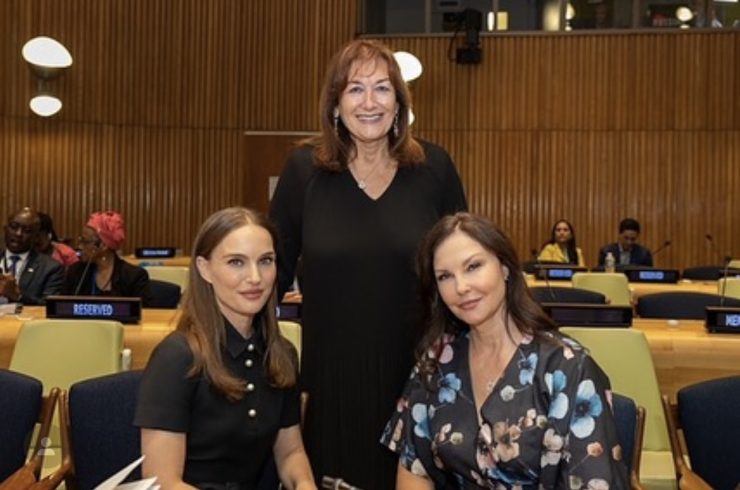Advocating for Legal Protection of Pregnant Women: A Call for Change
The Closing Plenary of the SDG Action Weekend brought to light a deeply unsettling and alarming statistic, as actress Natalie Portman, one of the many celebrity guests attending the summit, stated, "The leading cause of death for pregnant women is being murdered by their intimate partners." This grim reality underscores the urgent need for changes in Canada’s legal system to better protect pregnant women and their preborn children.
In various countries, there exists a significant disparity in how the legal system addresses violence against pregnant women. In some nations, including in most of the American States, killing a pregnant woman is considered a double homicide, acknowledging the loss of both the mother and her preborn child. However, in Canada, the legal framework fails to account for the preborn child as a victim. This gap in the law has troubling implications for justice and accountability. There is a moral difference between killing a pregnant woman and killing a woman who is not pregnant. In the first case two separate victims exist: the mother and her preborn child. Legal consequences need to reflect moral differences.

Conservative MP Cathay Wagantall recognized the need for change, and over the years has attempted to rectify this legal gap by first introducing Bill C-225 titled Protection of Pregnant Women and Their Preborn Children Act (Cassie and Molly's Law) in 2016, and more recently, Bill C-311, An Act to amend the Criminal Code (violence against pregnant women) in early 2023. The intent behind both bills was clear: to hold perpetrators accountable for the harm they caused to both the pregnant woman and her preborn child. These bills were common-sense and morally sound proposals, however, both faced unfortunate rejection. On both occasions, the Trudeau Liberals repeated the same talking points they have been using for the last decade, every time legislation dares to acknowledge that the existence of preborn children should be reflected in our laws. Cries of "the abortion debate is closed", "This is a back-end way to attack women's rights", "There's a hidden agenda" echoed throughout the House of Commons and in the media. In the end, backed by the NDP and Green Parties, the Liberals voted both bills down, leaving a critical gap in the protection of pregnant women and their preborn children.
In cases where a pregnant woman is murdered, it is often evident that the perpetrator intentionally targeted both the mother and the preborn child. This recognition of intent underscores the moral gravity of such crimes. Legal consequences should be structured to reflect these moral differences and uphold justice.
The horrifying statistic presented by Natalie Portman at the SDG Action Weekend Closing Plenary serves as a stark reminder of the vulnerability faced by pregnant women. While Natalie Portman did not explicitly address the topic of abortion during her talk, her position on the issue is well-known from her social media posts and public statements. Despite differing views on abortion, it is commendable that she has used her platform to shed light on the critical need to protect pregnant women from harm. Portman's advocacy serves as a reminder that there are common ground issues, such as the protection of pregnant women. However, it is important to recognize that when it comes to the sanctity of innocent children's lives, there is a stark division of opinion. While we appreciate her efforts in highlighting the safety of pregnant women, we must also hold celebrities accountable for their stance on abortion.
To address this pressing issue, it is imperative that the legal system evolves to provide adequate protection for both the mother and her preborn child. Bill C-311 and C-225 were steps in the right direction, yet their rejection highlights the need for continued advocacy and reform. By recognizing the moral distinction between killing a pregnant woman and a non-pregnant woman, we can create a legal framework that upholds justice, accountability, and the fundamental rights of pregnant women. It is time to stand up and fight for the legal protection of pregnant women, ensuring that their lives and the lives of their preborn children are safeguarded by our laws.

